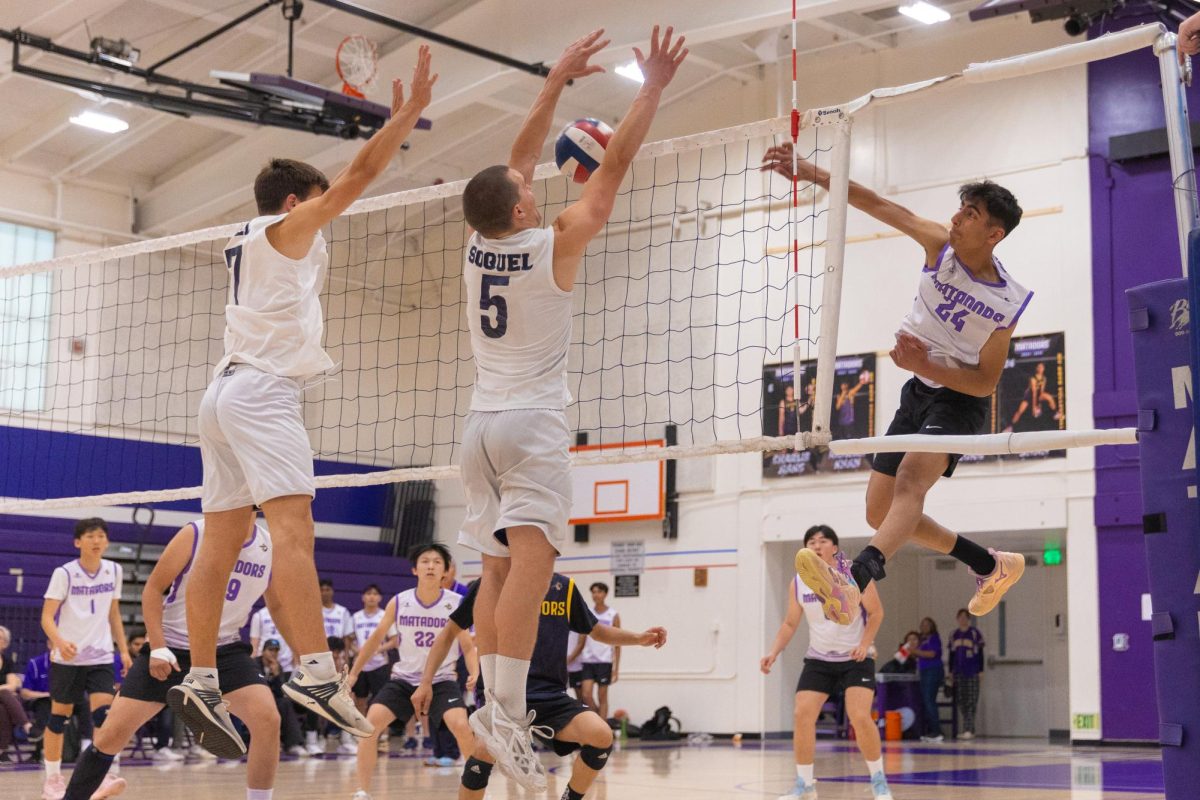Junior Samuel Toruno recalls his first meeting with Dr. Gustavo Fabian Portela, the team doctor for the Colombian soccer team Deportivo Cali, as a stepping stone in his athletic career. Toruno is a goalkeeper for the Silicon Valley Soccer Academy MLS Next 2007 team and has been playing soccer for around ten years. Toruno had known before consulting Portela that his diet was not optimal, but was unaware of the extent to which an adapted diet, similar to those of professional players, could positively affect his performance.
“I want to make it far in life playing soccer, so I had to make [this] switch,” Toruno said. “I was eating super unhealthy before, [but now] I feel better than I’ve ever [felt]. You’re just getting more energy, you’re playing better on the field [and] I feel more energized even though I’m getting [the] same amount of sleep. I’m eating even more than before — it’s just healthier food and I feel more energized.”
Toruno does not feel pressured by anyone to maintain his diet, but he instead feels that it is a personal choice that will allow him to further his career. Georgia Acker, a sports and contemporary nutrition professor at De Anza College, expands upon Toruno’s motivation to continue his diet, attributing an athlete’s motivation to the intense nature of athletics.
“What I have found, [is that] I’m a person who just [gives] out information and has students explore that,” Acker said. “ It’s a very competitive world out there in the sports world, so you just have to let students or athletes know what to do. I really believe that they will [listen] because they’re training so hard, and any kind of little edge you can get matters. Nutrition is one of the edges. [It’s] one of the secrets you can have over your competitor.”
While Acker notes that the right diet, varying depending on the athlete, can improve an athlete’s performance, sophomore Christopher Lamfalusi says it may not be as important. Lamfalusi participates in wrestling and football at MVHS, as well as ice hockey outside of school. He says diet has no long-term effects overall but still notes that the food he consumes affects his performance in certain aspects, mentioning a hockey game that he played in which he ate Chipotle before and consequently did not feel great.
“If you just eat differently in general, I feel like it doesn’t really make that big of a difference, but eating before game time makes more of a difference,” Lamfalusi said.
Acker highlights the importance of knowing what to eat as an athlete and notices that many, like Toruno, are initially uninformed about the essential nutrients needed to perform better in sports they participate in.
“I see a lot of athletes who don’t know how many fluids they need, the amount of carbohydrates they eat, the amount of protein they [need] for recovery,” Acker said. “Understanding the role carbohydrates, protein [and hydration] play can help an athlete. If you understand how to eat and how much fluid you need before, during and after, that can really enhance your performance beyond training.”
Toruno began meeting with a specialist a month ago, and since then has been following a strict diet, consisting of a heavy amount of protein and a good balance of carbohydrates and vegetables.

Similarly, Lamfalusi focuses on incorporating these into his meals, but follows a less strict diet. Toruno and Lamfalusi both believe that carbohydrates are actually beneficial to an athlete’s performance rather than detrimental.
“There’s definitely a negative connotation about carbs, but I don’t think that’s true,” Toruno said. “A lot of people just avoid carbs, but I don’t think [they] understand that carbs are what you need for energy. I train twice a day and I run in the morning every day where I’m letting a bunch of energy go, so I need the carbs.”
Lamfalusi agrees with Toruno, adding that carbohydrates are a necessity when it comes to the long hours of practice. He also believes there is an abundance of false information online and among peers as well as diets devaluing carbohydrates. Lamfalusi personally does not find value in any of these diets and does not feel the need to work around carbohydrates.
“I think people who avoid carbs are actually doing more harm than good,” Lamfalusi said. “Carbs are just the best source of long-term energy to stop yourself from exhausting your body.”
Acker expands upon Toruno and Lamfalusi’s point about the misinformation surrounding carbohydrates. She emphasizes the importance of absorbing and adapting with new information as research and studies are conducted and experimenting with your own diet.
“I think it’s just fun to try things out,” Acker said. “That’s what this is all about. You hear about something in a study and it’s a guideline. No one knows exactly what you need, [so] you [might think,] ‘let me play [around] with [my diet].’ The latest research on protein is that maybe we need a little bit more protein [than the current suggested amount]. So for me, I’m playing with that myself right now because I was somebody who believed the old information. We just keep flowing with the material.”











